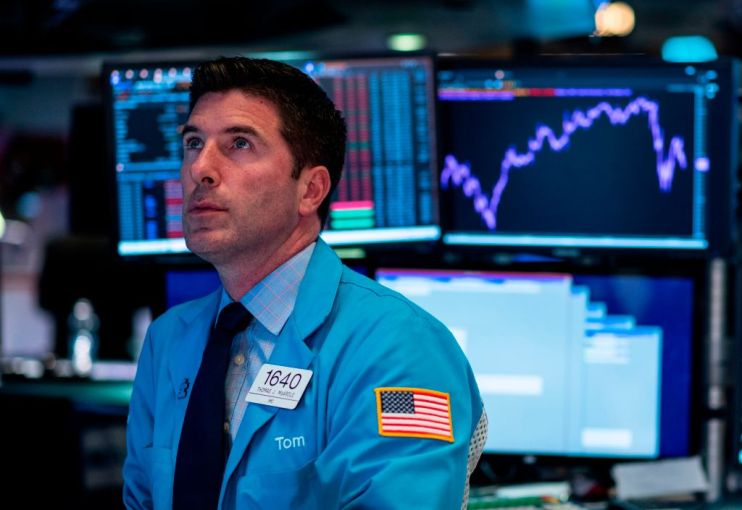US stock markets open lower amid Middle East tensions

US stock markets have opened lower after an escalation of tensions in the Middle East following the assassination by the US of the top Iranian general Qasem Soleimani.
The Dow Jones industrial average dropped 0.43 per cent shortly after the bell, while the S&P 500 dropped 0.26 per cent and the Nasdaq fell 0.38 per cent.
Read more: Boris Johnson to hold crisis talks over Soleimani killing
Investors have been spooked by threats from both sides following Solemaini’s death on Friday.
Iran has vowed revenge, causing President Donald Trump to warn that the US would strike back “perhaps in a disproportionate manner” if Iran hit any American targets.
The UK government announced earlier today that Prime Minister Boris Johnson will hold a series of talks over escalating tensions between Iran and the US in the coming hours.
US markets followed their European counterparts into the red. The UK’s FTSE 100 was 0.67 per cent lower by 2.30pm, while Germany’s Dax had shed 1.17 per cent and the pan-European Eurostoxx 600 had dropped 0.73 per cent.
“Equities may well retreat further in response to Iranian retaliation to the US killing and it is far from clear to what extent the conflict will escalate,” said Rupert Thompson, chief investment officer at investment firm Kingswood.
The tensions in a key oil-producing region sent the Brent crude oil price above $70 a barrel for the first time in more than three months this morning. It last stood at around $69.20.
Investors selling their shares bought up so-called safe-haven assets such as US bonds. The yield – which moves inversely to the price – on the US 10-year Treasury bond slipped down to 1.772 per cent this afternoon.
Markets will nervously await news from the region over the coming week.
Read more: FTSE 100 falls sharply as Soleimani death rocks stocks
Mark Haefele, chief investment officer at UBS Global Wealth Management, said: “Geopolitical events by their nature are unpredictable, but previous periods of increased tensions suggest that the impact on wider markets tends to be short-lived.”
He said the “more lasting effects” tend to be “confined to local markets”.